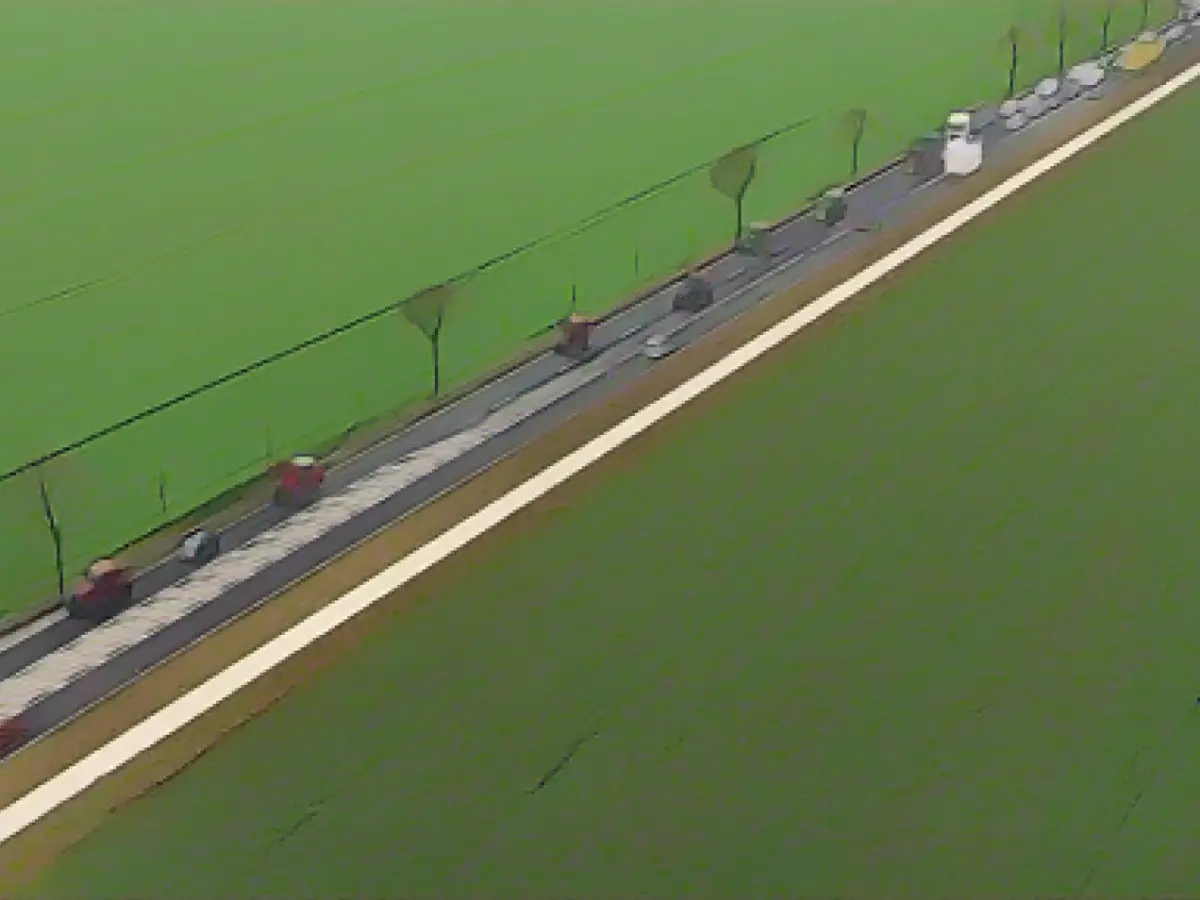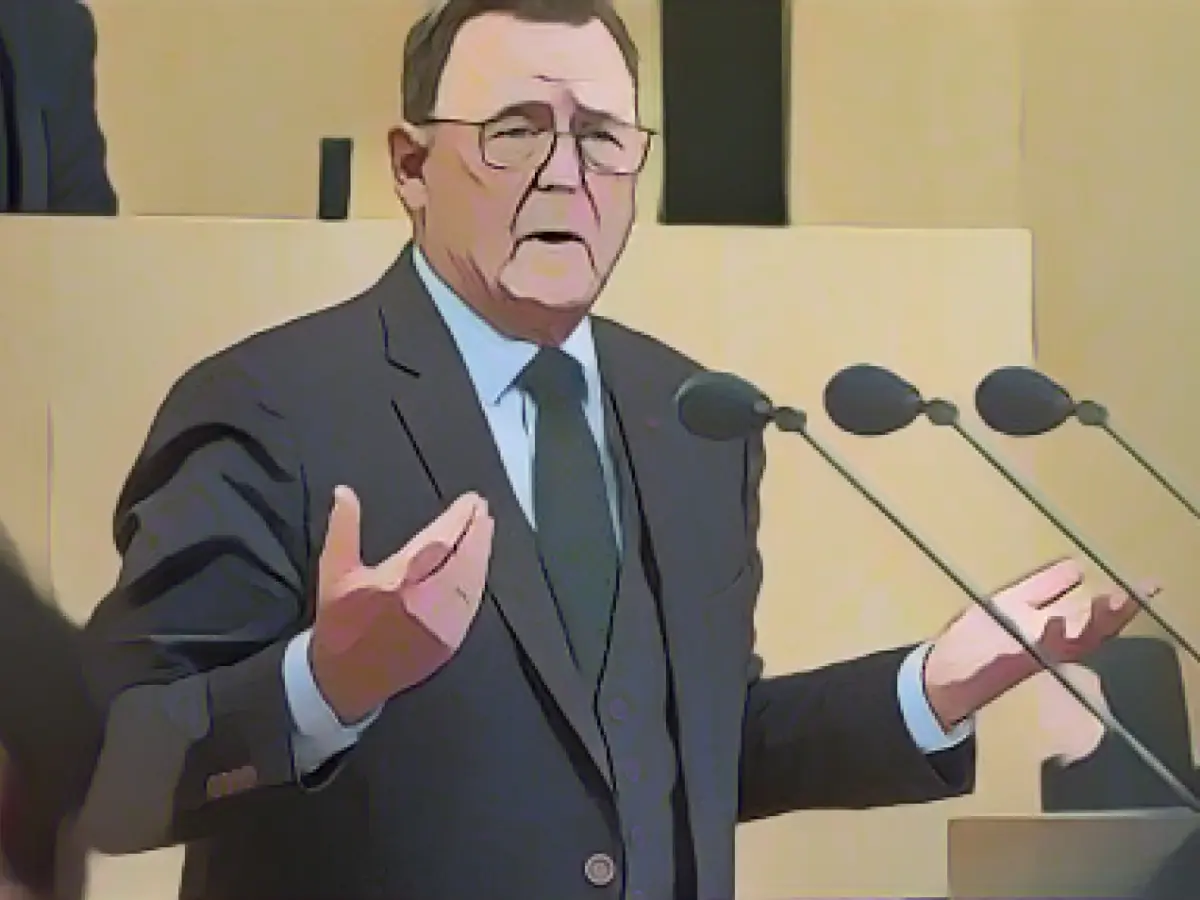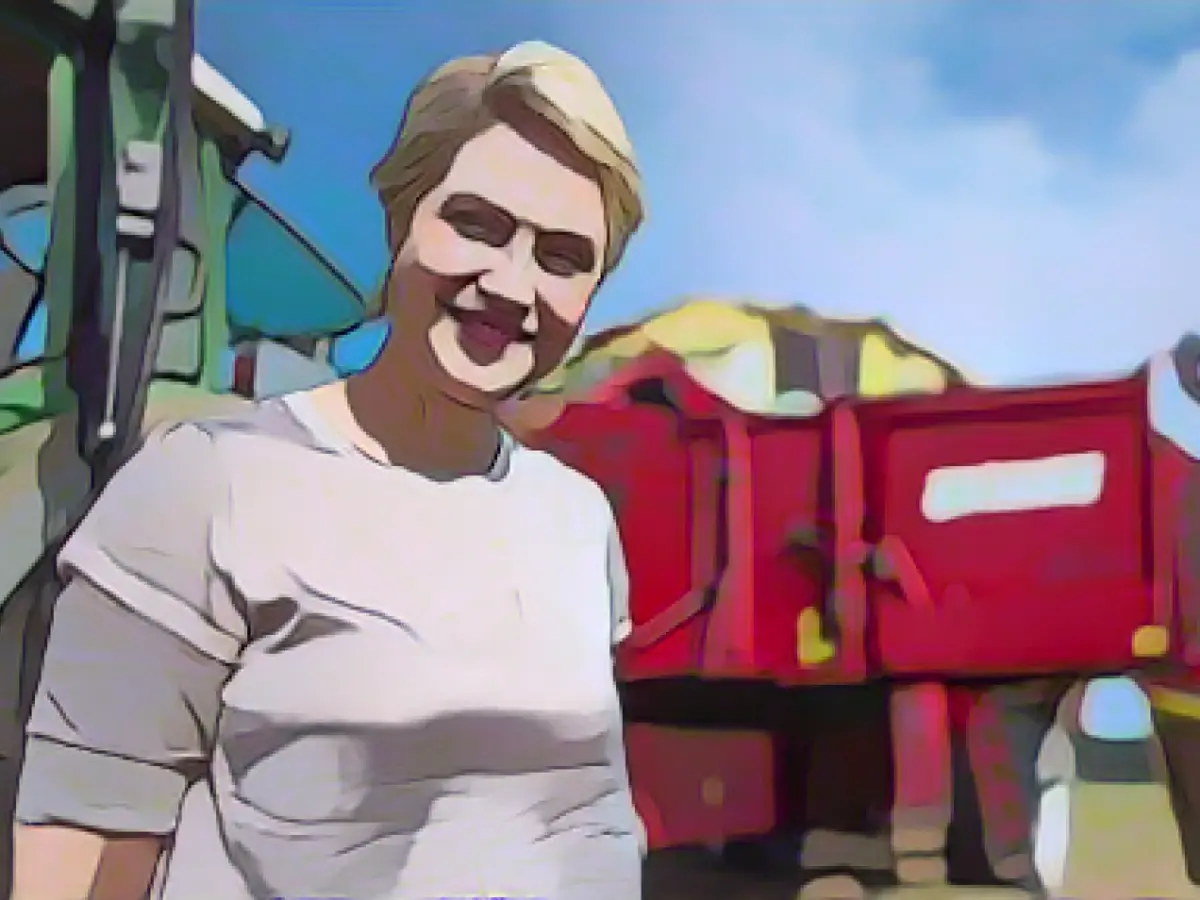Farmers Take to the Roads in Protest Against Agricultural Diesel Policies
Fed up with the proposed changes to agricultural diesel policies by the German government, a group of around 20 farmers took to the A28 highway leading towards Oldenburg on Wednesday night, determined to make their voices heard. The farmers, equipped with tractors and other vehicles, caused quite a spectacle, leading to a temporary closure of the highway by the Oldenburg Highway Police and a subsequent diversion of traffic.
The protestors, led by their rally leader, agreed to a route through Oldenburg city center with the police, and after the heavy vehicles had passed, the police lifted the full closure. The protestors then resumed their march, eventually gathering for a final rally after midnight.
The Oldenburg Highway Police expect further demonstrations by farmers in the coming days. The German government is considering abolishing regulations on agricultural diesel and vehicle tax exemptions to save costs, a move that the farming community sees as a threat to their livelihoods due to the additional costs this change would bring.
Oldenburg's Traffic Tangle
The Highway Police in Oldenburg had their hands full dealing with the slow-moving convoy of tractors. They had to coordinate with the local traffic in the Ammerland district and ensure the safety of all road users. The police release stated their support for the farmers' right to peaceful protest, but they were also keen on maintaining traffic flow and ensuring public safety.
Despite the concessions made by the government, the disagreement over diesel tax breaks remains unresolved. Farmers have been clogging Berlin streets with tractors and blocking highway entrances across Germany, reflecting widespread discontent with the German government's economic policies and agricultural support.
Striking a Balance
The government's plan to cut diesel tax breaks sends mixed signals to farmers, who rely heavily on diesel for their operations. On one hand, the government wants to reduce its spending, but on the other, it recognizes the importance of agriculture as a vital sector for the nation.
Farmers' representatives have met with leaders of all three governing parties' parliamentary groups, voicing their concerns and seeking solutions. While the government has acknowledged the farmers' challenges, it has yet to find a lasting solution to the diesel tax break issue.
The Wider Perspective
The farmers' protests in Germany represent a broader discontent with the government's policies, particularly in the agricultural sector. Farmers are frustrated with increasing regulations, requirements, and restrictions on their operations, as well as the influx of cheaper, lower-standard food imports from abroad.
Subsidies and support from the government and the European Union has helped to keep farming viable for many, but the question of how long this support will last continues to weigh heavily on farmers' minds.
Enrichment Insights
The farmers' protests in Germany are primarily against the government's plan to scrap tax breaks on diesel used by farmers. Here are the key reasons and actions taken by the authorities:
Reasons for the Protests 1. Tax Breaks on Diesel: Farmers are protesting against the planned reduction or elimination of tax breaks on diesel fuel, which they argue will significantly increase their costs and negatively impact their livelihoods[2]. 2. Cumulative Frustration: The protests also reflect broader frustrations among farmers regarding increasing regulations, requirements, and restrictions on their operations. They feel overwhelmed by the increasing demands and the influx of cheaper, lower-standard food imports[2]. 3. Imported Food Standards: Farmers are concerned about the impact of cheap food imports on their own production standards and the potential loss of market share due to these imports[2].
Actions Taken by Authorities 1. Concessions Made: Initially, the government planned to scrap the tax breaks entirely, but following the protests, it watered down the plan. The government decided to retain a car tax exemption for farming vehicles and stagger the cuts in diesel tax breaks over three years[2]. 2. Meetings with Farmers: Despite the concessions, the disagreement over diesel tax breaks remains unresolved. Farmers' representatives met with the leaders of all three governing parties' parliamentary groups, who offered to address the wider challenges faced by farmers but did not resolve the diesel tax break issue[2]. 3. Public Response: Finance Minister Christian Lindner acknowledged the legitimacy and peaceful nature of the protests. He emphasized that agriculture is a unique sector requiring state support, noting that it receives 9 billion euros annually from the government and the European Union[2].
The protests have been significant, with farmers clogging Berlin streets with tractors and blocking highway entrances across Germany. The demonstrations have tapped into wider discontent with the German government, reflecting broader concerns about economic policies and agricultural support[2].








